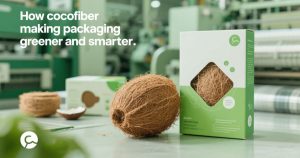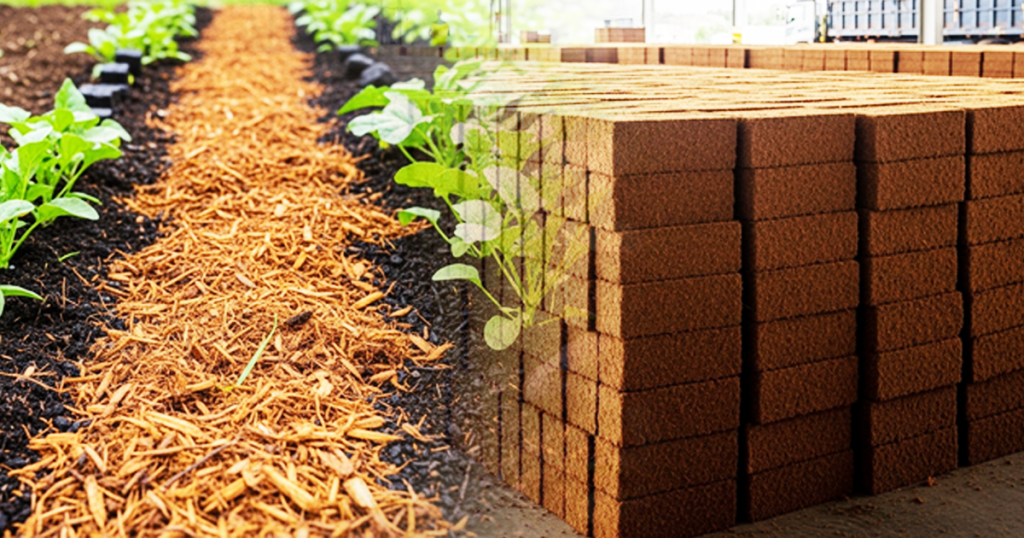Cocopeat Powder: The New Green Gold in Sustainable Agriculture
As a researcher specializing in sustainable agro-substrates, I’ve observed a growing interest in cocopeat powder manufacturing. This organic, fibrous byproduct of coconut processing is no longer considered agricultural waste it’s become a commodity of high strategic value. From hydroponics to eco-friendly packaging, cocopeat’s relevance in green industries is skyrocketing, drawing the keen attention of investors worldwide.
In recent years, the convergence of environmental sustainability and agricultural innovation has positioned cocopeat as a crucial material. Its water retention, aeration, and biodegradability make it a superior alternative to peat moss and synthetic substrates. Consequently, investors are not just looking at cocopeat as a farming input, but as a key asset in the circular economy.
This article explores the underlying drivers of this investment trend and the scientific reasons why cocopeat manufacturing is gaining prominence across multiple industries.
The Agricultural Shift Toward Sustainable Media
Cocopeat as the Future of Soilless Cultivation
Modern agriculture is increasingly shifting towards hydroponics and vertical farming. These systems demand clean, pH-stable, and sustainable growth media an area where cocopeat excels. Unlike traditional soil, cocopeat provides uniform nutrient distribution, minimal risk of soil-borne diseases, and excellent water holding capacity.
In controlled environment agriculture (CEA), consistent performance is essential, and cocopeat’s ability to maintain moisture while allowing air flow has proven advantageous. Its compatibility with various crops, from leafy greens to flowering plants, adds to its desirability among greenhouse operators. For this reason, manufacturers producing fine-grade cocopeat powder are becoming integral to the precision farming supply chain.
With climate change threatening traditional farming, investors see an opportunity in cocopeat’s ability to support resilient agricultural systems. The global demand for food security and sustainable practices is pushing innovation, and cocopeat is front and center in this transformation.
Export Value and Global Demand Growth
According to recent export data, countries like India, Sri Lanka, and the Philippines are witnessing a surge in cocopeat powder demand. Markets in Europe, the Middle East, and North America are rapidly adopting cocopeat for horticulture, mushroom farming, and reforestation projects.
This demand is reflected in steady year-on-year growth in export volume and value. Cocopeat’s low carbon footprint and renewable sourcing appeal strongly to eco-conscious consumers and regulatory bodies.
Certifications such as OMRI and ISO 9001 have further validated its suitability for organic and sustainable agriculture, enhancing its global marketability. As a result, investment in manufacturing plants close to coconut-producing regions is seen as a high-return strategy.
Many investors are diversifying into agro-tech, and cocopeat offers a low-barrier entry point with scalable opportunities. Unlike high-capital tech startups, cocopeat processing units can be established with moderate investment while offering rapid operational returns.
Diversified Industrial Applications Beyond Agriculture
The Rise of Cocopeat in Non-Agricultural Sectors
Beyond farming, cocopeat powder is finding uses in several industries. Its natural absorbency makes it suitable for oil spill cleanup, while its fibrous texture supports use in biodegradable packaging. In animal husbandry, it’s being tested as an eco-friendly bedding material with excellent odor control properties.
The construction sector is also exploring cocopeat as a component in eco-bricks and insulation materials. These innovations are aligned with the global green building movement and are stimulating R&D funding in alternative materials. Investors focused on ESG (Environmental, Social, Governance) metrics are particularly drawn to cocopeat’s potential in reducing construction waste.
Such cross-sector versatility ensures a wider investment cushion, lowering risks typically associated with commodity-based industries. For stakeholders, this makes cocopeat powder manufacturing not just a green investment but a smart one.







